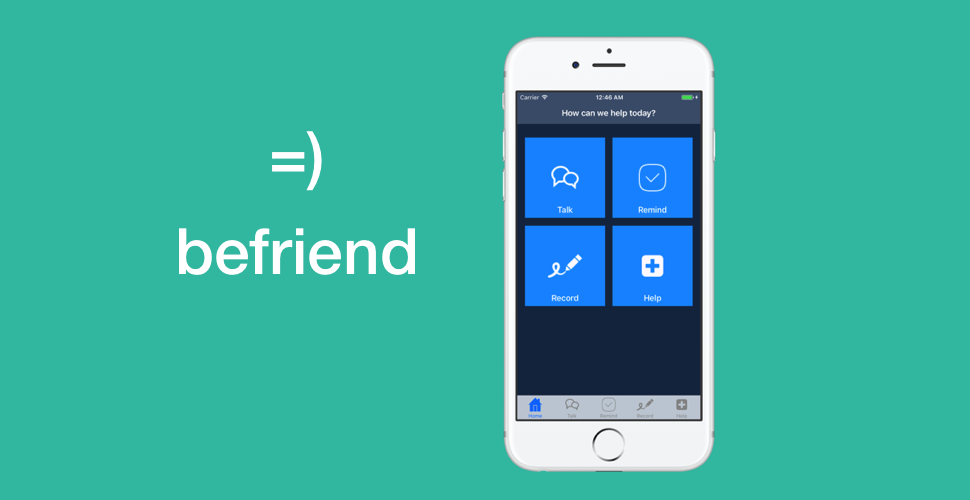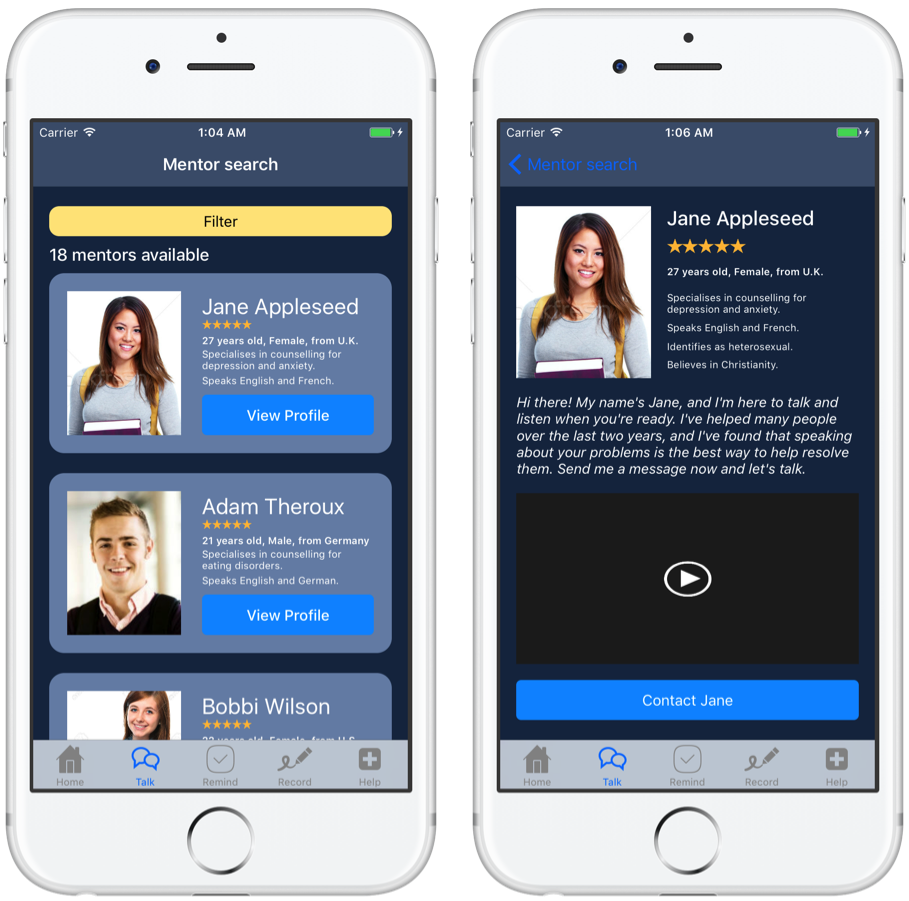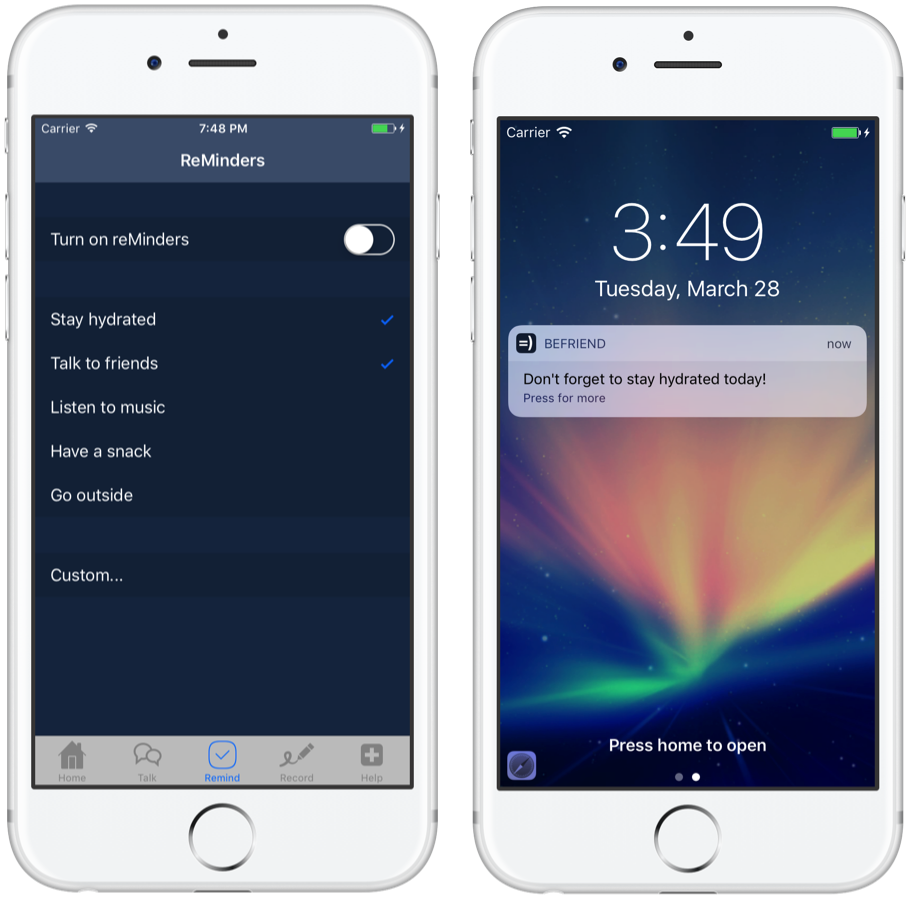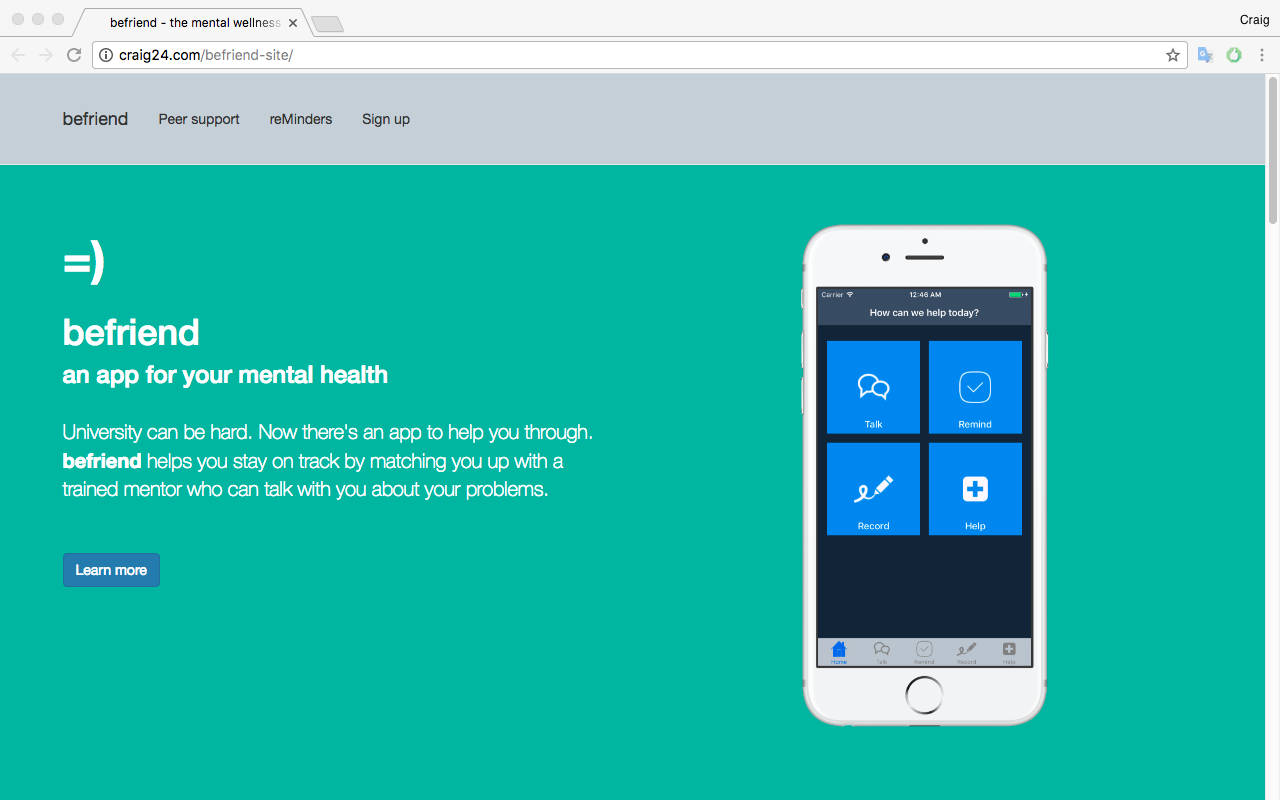
Befriend - a mental health app for university students
One of the optional modules I took at UCL this year was Entrepreneurship, where we had to form groups and come up with a business idea. This involved writing a formal business plan as well as coming up with the branding and ultimately deciding whether the business would be viable.
The idea
I partnered with two students from other courses, one of whom suggested the idea of a mobile app which would provide mental health support to university students. We knew this was a problem that needed solving - just in UCL, our own university, the existing psychological services looked after around 3,000 students in the 2015-16 academic year with just 13 clinicians. This usually resulted in unacceptably long waits for students in need.
The initial idea for our app was to connect students needing help with older students, trained in peer support, who perhaps had already gone through some of those issues. Over the course of the three month module, we conducted various interviews with both professionals and potential users, and learnt a lot, helping us refine our idea. For example, we learnt that students were strongly opposed to receving support purely through an app. Instead, we would use the app to arrange meetings, and work with the university to create safe spaces for those students to meet. We were also very pleased with the feedback from UCL’s student psychological service, who were enthusiastic about our idea.
 The app would allow students to find a suitable mentor, and to contact them to arrange a peer support session.
The app would allow students to find a suitable mentor, and to contact them to arrange a peer support session.
We diversified the app by adding in other features. One such feature was “ReMinders”, which would send push notifications to the user each day reminding them to do things like “stay hydrated”, “talk to friends”, and other actions proven to make people feel happier. Eventually, the app could become a platform for other services, like private therapists or sellers of self-help books, who would want to reach these types of users.
The service would make money by selling a license to the university at a fixed cost for each student. Students would be automatically registered - it was thought this was the best way of making sure they actually used the app.
 One additional feature was a simple push notification service with helpful self-care tips.
One additional feature was a simple push notification service with helpful self-care tips.
The technology role
As the only CS student in the group, I was in charge of making the mockup of the app and also creating a website and video which explained the idea. I designed several screens of the app using the Interface Builder in Xcode. I decided this was the easiest option since I had some experience with Interface Builder, although if I had to do it again now I would probably use Sketch instead. I’ll be the first to say I’m no designer, but I don’t think I did a bad job. You can see some of the screens I designed on this page.
 The promotional website for befriend.
The promotional website for befriend.
The website was a customised version of a single page template. The focus was on simplicity, highlighting the key features of the app and using bold colours and large images to make the page stand out. I just used plain HTML/CSS/JS, meaning I could host the page quite easily on GitHub. You can see the website here.
The video is something I’m really quite proud of. I made it over the course of a weekend, starting by sketching out a storyboard of what it should look like, and then creating it using some Adobe software. The video takes the style of other startup promotional videos, using simple images and text with a voiceover and, of course, the obligatory ukelele music. The video received the highest possible mark.
Conclusion
The viability of the business was not easy to establish as we needed to know how much universities would be willing to pay, and the sort of data that would have helped us establish this (like existing software licensing deals and internal funding allocations) wasn’t readily available. At a cost of £1 per student, which we thought was reasonable, we would be able to cover the costs of running the service for a single university and make a small profit. This would then be easy to scale to multiple universities in future.
Overall we think we came up with a strong business idea which hadn’t been tried before, and which had the potential to be of genuine value to society. We put a lot of time into researching and refining the idea and, fortunately, this was reflected in the grade we received.